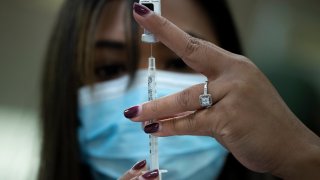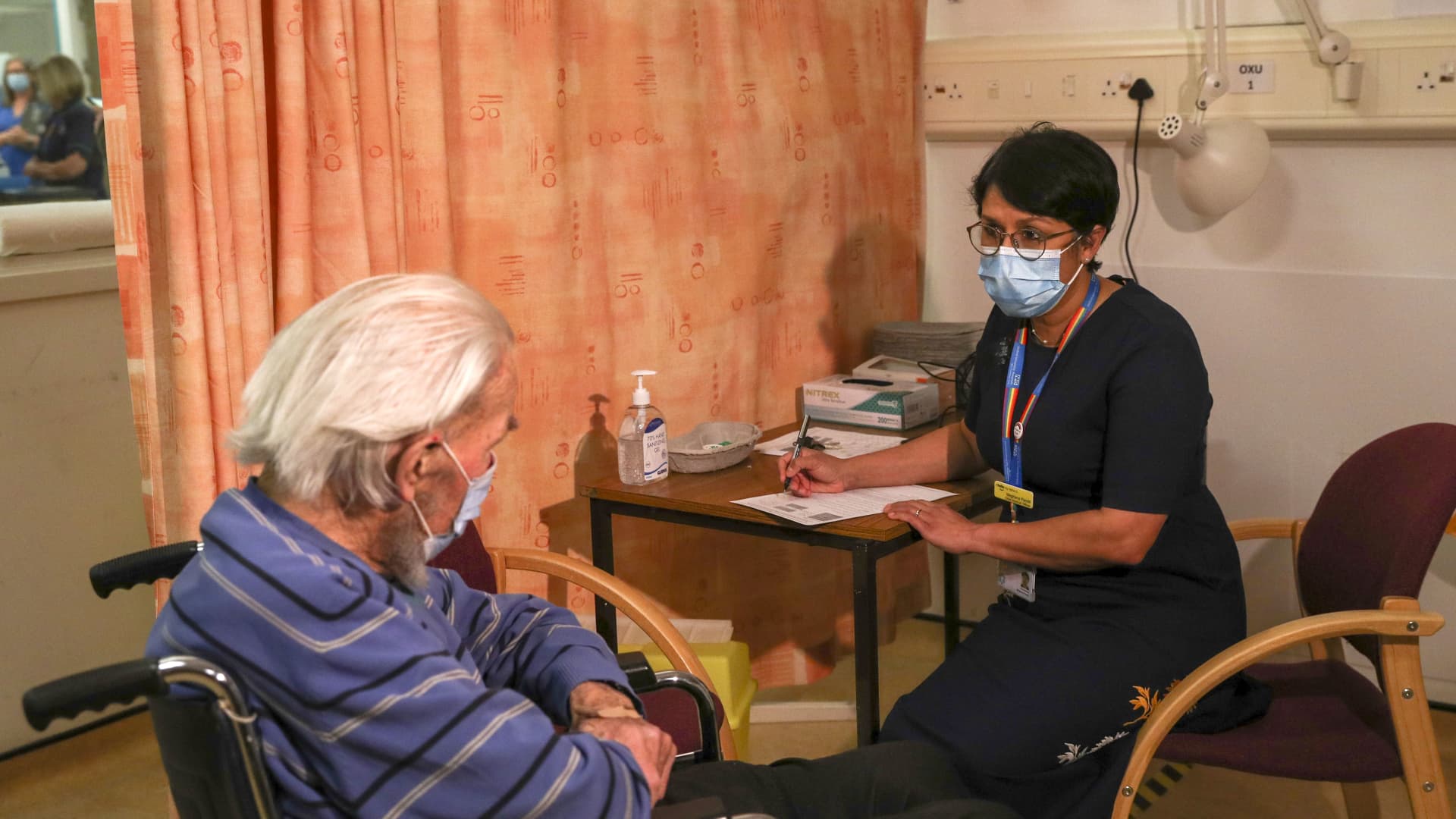
- The U.K.'s Scientific Advisory Group for Emergencies (SAGE) said in a statement published Sunday that it was a "very difficult and finely balanced decision" but it endorsed the U.K. government's move to pursue coverage of as high a proportion of the population as possible.
- However, it said the change of policy must be accompanied by several other measures.
- Germany's health ministry on Monday sought the advice of an independent vaccination commission on whether to follow in the U.K.'s footsteps.
LONDON — Health experts have conditionally backed the U.K.'s decision to delay administering a second dose of the coronavirus vaccine developed by Pfizer and BioNTech, warning that the need to suppress the new coronavirus strain "cannot be overstated."
It comes shortly after the U.K. said second doses of the Pfizer-BioNTech jab, in addition to the newly-approved Covid-19 vaccine developed by AstraZeneca and the University of Oxford, would now be given up to 12 weeks after the first dose.
The National Health Service had previously planned to administer a second dose of the Covid-19 vaccine three weeks after the first, to be confident of sustaining a high level of protection against the virus.
Get top local stories in Philly delivered to you every morning. >Sign up for NBC Philadelphia's News Headlines newsletter.
The U.K.'s Scientific Advisory Group for Emergencies (SAGE) said in a statement published Sunday that it was a "very difficult and finely balanced decision" but it endorsed the U.K. government's move to pursue coverage of as high a proportion of the population as possible.
However, it said the change of policy must be accompanied by several other measures. These included: the publication of a detailed and convincing strategy to scale up the vaccination roll out, the development of a rigorous evaluation process, a real-time evaluation of ongoing viral variation and the need to restrict movement to and from Britain to the rest of the world.
SAGE is comprised of health experts and academics and is co-chaired by the British government's chief scientific advisor and chief medical officer.

The comments come despite the British Medical Association criticizing the U.K.'s decision to delay second doses of the Pfizer-BioNTech vaccine. It described the move as "grossly unfair" to thousands of at-risk patients in England.
Money Report
"The BMA believes the existing commitment made to these patients by the NHS and local clinicians should be respected. If GPs decide to honour these booked appointments in January the BMA will support them," Dr. Richard Vautre, chair of the BMA GP committee, said in a statement on Dec. 31.
In response to these concerns, the SAGE committee said: "In normal circumstances, we would argue for continuation of the earlier plans to administer two doses of the Pfizer-BioNTech vaccine 21 days apart. However, these are not normal circumstances and there are other important public health considerations."
Germany's health ministry on Monday sought the advice of an independent vaccination commission on whether to follow in the U.K.'s footsteps.
A spokesperson for the ministry confirmed to CNBC that the German government had asked the Standing Committee on Vaccination at the Robert Koch Institute whether the country should delay a second shot of the Pfizer vaccine. "Such a decision needs a scientific consideration," they added.
'Tough' measures required
U.K. Prime Minister Boris Johnson said on Monday the government could soon announce stricter public health measures to prevent the spread of the coronavirus.
Johnson said "tough" measures could be in place for weeks to come. At present, more than three-quarters of the U.K. population are in Tier 4 — the highest level of restrictions.
The opposition Labour Party has said the government must impose a national lockdown within 24 hours, warning the virus is "clearly out of control."
The U.K. on Sunday recorded more than 50,000 new confirmed Covid-19 infections for the sixth consecutive day. The country continues to fight against a new strain of the virus that spreads more quickly.
To date, the U.K. has reported more than 2.6 million coronavirus cases, with 75,137 deaths, according to data compiled by Johns Hopkins University.
"It is now clear that the new variant of the virus, which seems to have emerged in the South East of England, is substantially more transmissible than earlier variants, by 40-80%," SAGE said in a statement on Jan. 3.
"It is also clear that the current Tier 4 restrictions are unable to contain its spread, even with closure of schools and universities."
"The pandemic is now out of control, and the NHS is struggling, with some hospitals having to stop non-COVID activities. The NHS is no longer being protected. For these reasons, there is a strong argument for maximising the coverage of the population with at least one dose of vaccine, even though this requires a change to the dosage schedule," the group added.






